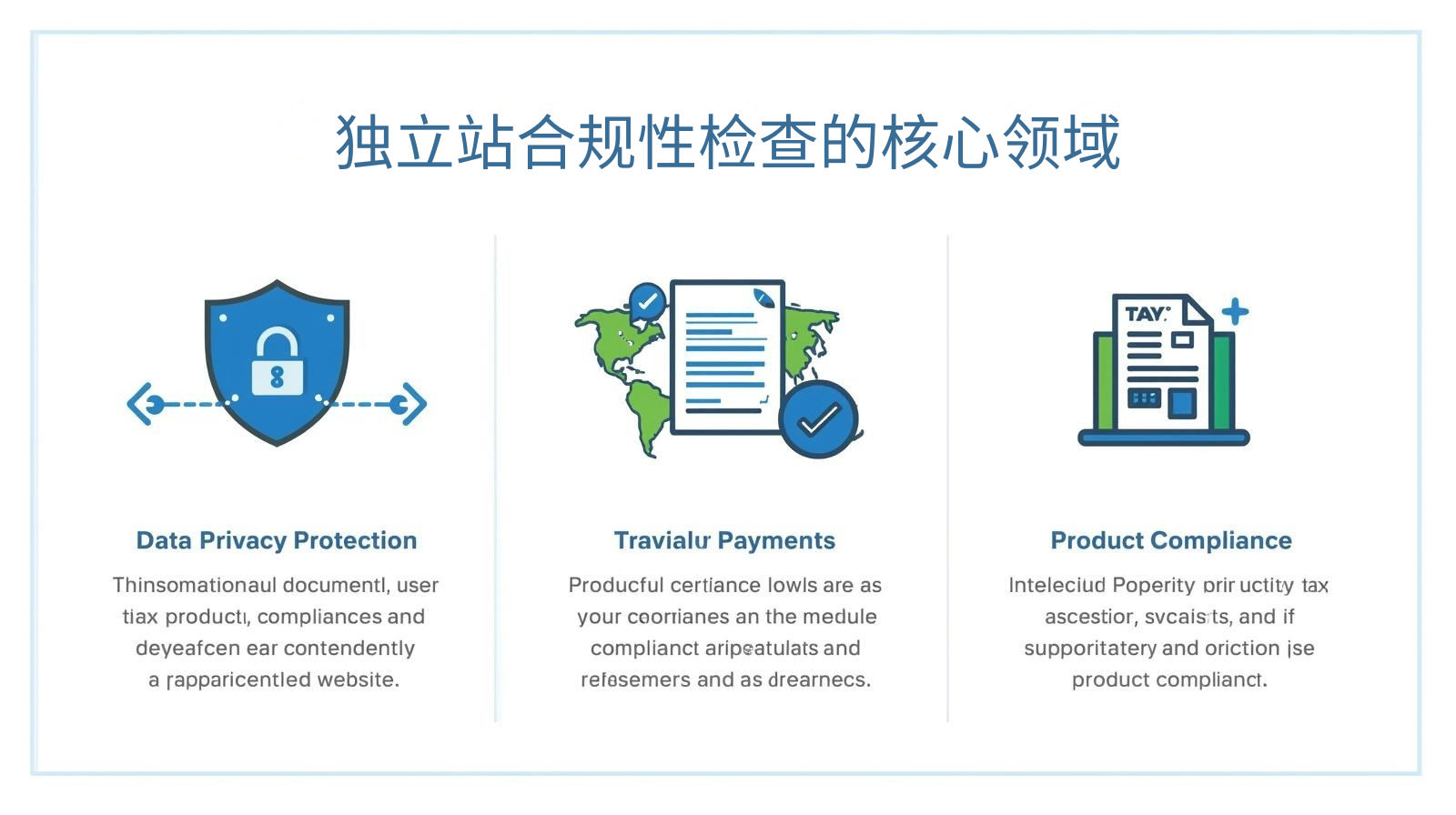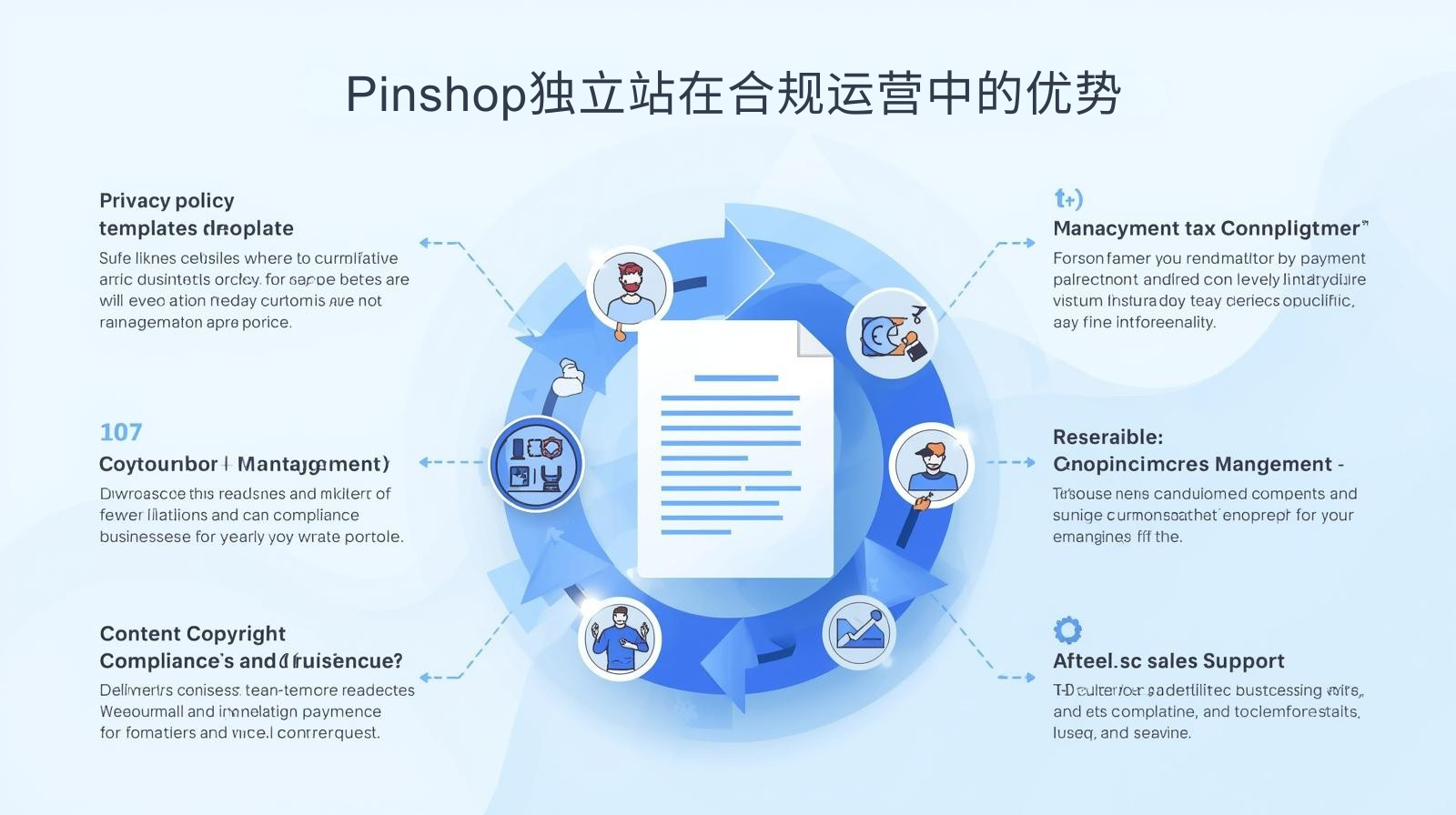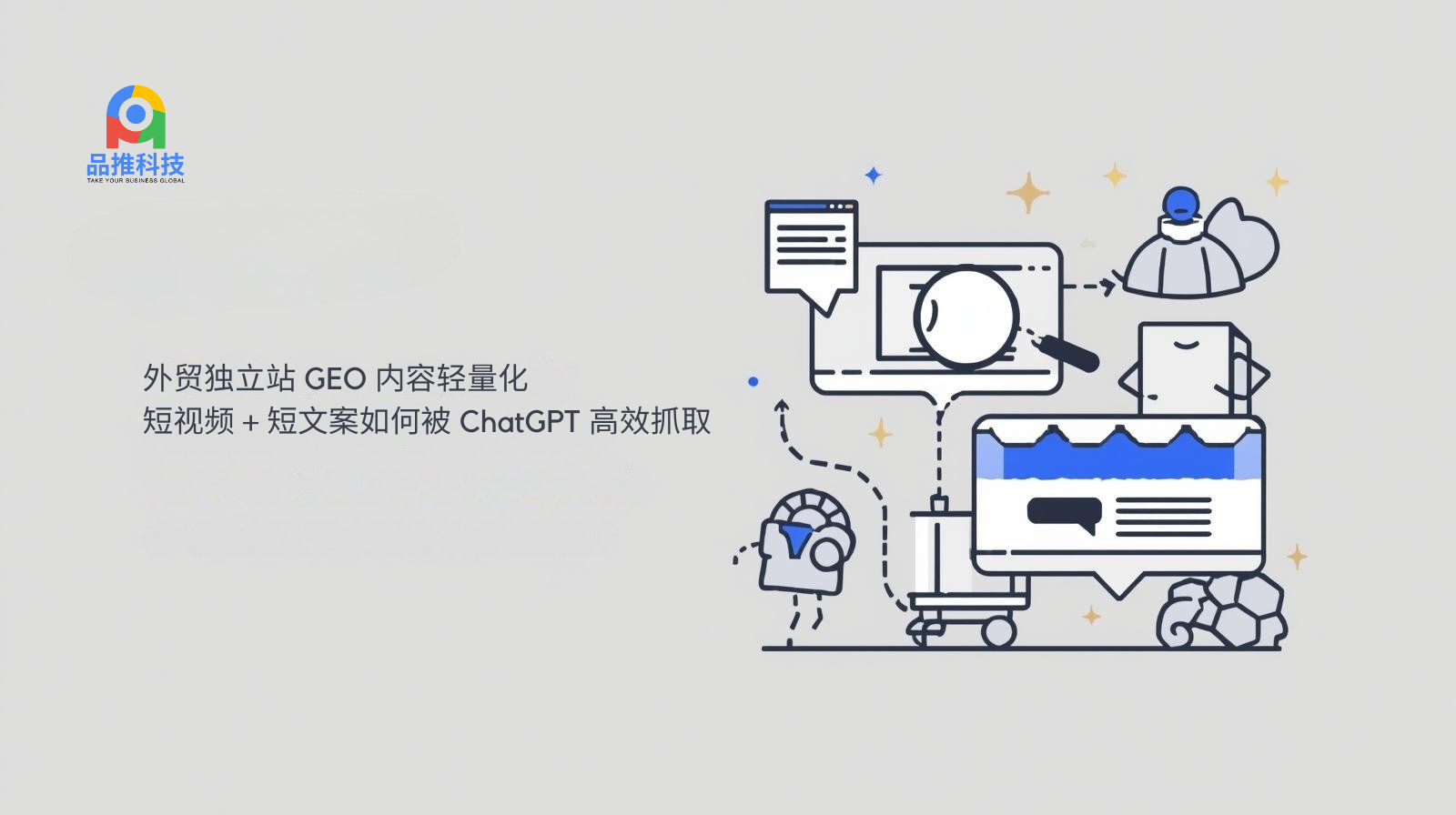With the growth of cross-border e-commerce, independent websites have become a crucial component of a company's globalization strategy. However, regulatory requirements vary significantly across countries and regions, encompassing areas such as data protection, tax reporting, payment security, and intellectual property rights. According to research by the International E-commerce Association ( IEA ), adhering to compliance standards not only reduces legal risks but also enhances customer trust and brand reputation.
For business owners and foreign trade decision-makers, ignoring independent website compliance can result in hefty fines, account suspensions, and even lawsuits. Therefore, establishing a systematic compliance checklist is essential for the long-term and stable operation of an independent website.
 Core areas of independent website compliance inspection
Core areas of independent website compliance inspection
Data Privacy and Protection <br>Global regulations for user data protection are becoming increasingly stringent. Regulations such as the EU GDPR and California's CCPA require companies to transparently collect and manage personal data. Companies should ensure that their independent websites include a privacy policy page, encrypted user data transmission, and optional user data deletion and export capabilities. According to the Center for Cybersecurity and Data Protection ( CCDP ), compliant data management can significantly reduce the risk of potential fines.
Cross-border payments and tax compliance <br>Cross-border transactions involve different countries' tax regulations, including value-added tax (VAT), customs duties, and other transaction fees. Businesses must configure payment and invoicing systems that comply with local tax laws and ensure complete and traceable transaction records. The IEA notes that tax compliance is fundamental to the sustainable development of cross-border independent websites, and a well-designed system can avoid additional financial burdens.
Intellectual Property and Product Compliance <br>Products sold on independent websites must comply with regulatory requirements, including product safety certification, trademark, and copyright protection. Violations of intellectual property rights or the sale of non-compliant products may result in product removal, platform bans, and legal action. The World Intellectual Property Organization ( WIPO ) recommends that companies regularly review their products and content to prevent infringement risks.
Consumer Protection and After-Sales Policy <br>Different countries have clear regulations on returns, exchanges, after-sales service, and handling consumer complaints. Independent websites must provide clear terms of service, return and exchange policies, and customer service channels to protect consumer rights and comply with local regulations.
How to create a compliance checklist for your independent website
Sort out regulatory requirements : List key compliance items based on the laws and regulations of the target market countries and regions.
Establish internal processes : clearly define the responsible person, execution time, and review process for each compliance task.
Tool and platform assistance : Use independent website building platforms or third-party compliance tools to achieve automated inspection and record archiving.
Regular review and update : As regulations change, regularly update the checklist to ensure that independent website operations always comply with legal requirements.
 The advantages of Pinshop independent station in compliant operation
The advantages of Pinshop independent station in compliant operation
Pinshop's website building platform provides comprehensive independent website compliance solutions for businesses, including privacy policy templates, multi-currency payment and tax management, content copyright management, and after-sales process support. Through the platform, businesses can easily build independent websites that comply with global regulations, reduce operational risks, and focus more on brand promotion and customer development.
Combined with Pinshop's compliance functions, enterprises can form a complete compliance management closed loop. From website building and content management to transactions and customer service, each link has standardized processes and compliance guarantees.
Make compliance the cornerstone of independent station growth
Independent website compliance isn't a tedious burden; it's a strategic guarantee for a company's stable global expansion. By establishing a scientific compliance checklist and combining it with the tools and templates of the Pinshop website building platform, companies can operate safely in the global market, enhance customer trust and brand value, and achieve long-term growth.
Use Pinshop now to start independent website compliance management and build a digital overseas system that complies with regulatory requirements and has sustainable growth.
Recommended related articles: Multilingual Independent Station Strategy: Balancing Localization and Internationalization







